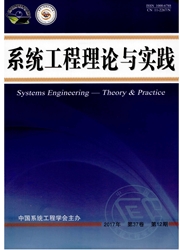

 中文摘要:
中文摘要:
基于集成经验模态分解(ensemble empirical mode decomposition,EEMD)对非线性、非平稳性金融时间序列的有效处理,运用EEMD方法分别将投资者情绪和股指价格序列分解成若干个独立的、不同尺度的IMF分量和一个残余项,提取出序列在不同时间尺度下的波动特征,并将得到的IMF分量和残余项按照高低频重构为序列的短期波动项,中期重大事件影响项和长期趋势项,进一步结合计量模型考察投资者情绪和股指价格序列在不同时间尺度下的波动关联性.实证结果表明,投资者情绪与股指价格波动在不同时间尺度下呈现出不同的波动关系:短期投资者情绪与股指价格波动存在双向影响,中期投资者情绪波动领先于股指价格波动,而长期则转变为股指价格领先投资者情绪波动.
 英文摘要:
英文摘要:
Based on the effectiveness of ensemble empirical mode decomposition (EEMD), we deal with nonlinear and non-stationary financial time series. EEMD is applied to decompose the sequences of investor sentiment and stock indices into several independent intrinsic mode functions (IMF) with different scales and a residual term, to extract the fluctuation characteristics in different time scales of the sequences. And then we reorganize them to three parts: High frequency represents the short-term market fluctuations, low frequency by major events, and long-term trend. Further combined with econometric models, we analyze the fluctuations between investor sentiment and stock indices in different time scales. The empirical results show that the fluctuation relationship between investor sentiment and stock indices in different time scales is significantly different: in short-term, it's a two-way influence; in the medium-term, investor sentiment is ahead of stock indices' fluctuation and in the long-term, it's reverse.
 同期刊论文项目
同期刊论文项目
 同项目期刊论文
同项目期刊论文
 期刊信息
期刊信息
